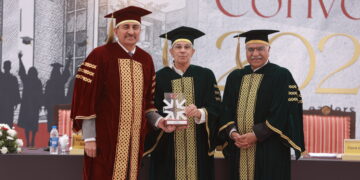BY : Abbas Khader.
Introduction
Every year, residents of Karachi eagerly await the arrival of winter, as temperatures drop slightly, bringing a welcome relief from the intense heat that dominates most of the year. However, this year, everyone has noticed an unusual delay in the cold weather, prompting many questions about the reasons behind this delay. In this article, we will explore the factors that may be causing the delay in colder weather this season, while shedding light on climate change and its impact on Karachi’s weather.
1. Climate Change and Global Warming
One of the primary reasons for the delayed arrival of cooler weather in Karachi may be global warming, which has caused an increase in global temperatures and altered weather patterns in many parts of the world. Global warming is caused by the accumulation of greenhouse gases, such as carbon dioxide and methane, in the atmosphere, which leads to an increase in Earth’s temperature and changes to usual climate patterns. This climate change may be delaying the start of winter and causing fluctuations in temperatures.
2. The Influence of the Indian Ocean and Ocean Currents
Karachi is significantly affected by its coastal location on the Indian Ocean, where ocean currents control the city’s temperature and humidity levels. Changes in ocean temperatures can impact the general climate, especially as warm and cold currents shift periodically. When warm currents dominate, they raise the air temperature in Karachi, delaying the arrival of cold air.
3. Seasonal Weather Variations in the Region
Another reason for the delayed cold could be seasonal weather variations. Karachi’s climate is influenced by monsoon winds from India and the Indian Ocean, and these winds play a role in either cooling or warming the temperature, depending on their type and time of arrival. This year, the arrival of cooler winds from the north may have been delayed, causing temperatures to remain high for longer.
4. Impact of Urbanization and Lifestyle
Urban expansion, crowded residential areas, factories, and transportation all contribute to increased temperatures in Karachi. This phenomenon, known as the “urban heat island effect,” occurs when buildings, roads, and vehicles absorb and retain heat, raising the temperature and delaying cooler weather.
5. Comparison with Previous Years
When comparing temperatures in Karachi during the same period in previous years, a gradual increase in delayed cold weather can be observed. This trend has started to draw the attention of researchers and experts who point out that weather has become more erratic due to global climate change.
Conclusion
In conclusion, the delayed cold weather in Karachi this year is simply a reflection of broader climate changes happening around the world. It has become evident that global warming and seasonal variations are affecting the nature of seasons, including winter. It is crucial to understand the impact of climate change on our daily lives and consider ways to reduce contributing factors to rising temperatures, not just in Karachi, but globally.



















